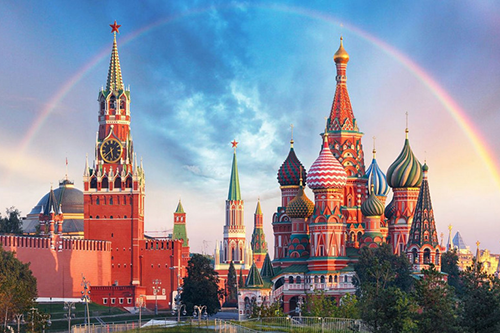探究中、俄与西方文化的演进历程,以洞见思想视角的多样性
“文化”与“文明”概念始终处于语义模糊的范畴,二者常被混用——这种趋势源于全球化背景下西方世界观对普适性话语的垄断。纵观历史,这些术语的涵义不断流变,不仅跨越文化边界时呈现多重解读,即便在特定社群内部也存在诠释差异。当我们深入这些复杂概念时,必须追问:它们能否成为对话的共同基础?抑或会掩盖不同社会群体间的根本分歧,进而引发冲突,甚至摧毁人类文明成果?这正是需要审慎考量人类行为中变量与常量的根本动因。更关键的是,必须认识到个体身份与集体文化之间的互动如何塑造社会动态,这使得理解这些术语变得愈发复杂。厘清这些核心价值的共性与差异,不仅将促进全球合作,更能增强相互尊重与理解,减少冲突,为不同民族与国家构建更加和谐的共存之道。
This study provides a theoretical justification for the necessity of maintaining a system of traditional values for the existence and sustainable development of the state, drawing on data from anthropology, cognitive science, and philosophy. It argues that fundamental human needs can be understood as values of life and honor, which are subsequently shaped within culture, thereby defining the distinct worldview and value system of a given community. By applying these findings and synthesizing them with established historical facts of Russia, the study elucidates the evolutionary nature of the Russian people’s collective identity. Russia’s close interaction with both Western and Eastern cultures has enabled it to synthesize a unique value system—one that integrates patriotism and devotion to the homeland with compassion and humanity toward all people. The capacity to retain such diverse moral principles within both individual and collective consciousness has been made possible by the continuous pursuit of new solutions and constructive labor. In turn, this creative capacity facilitates the overcoming of limitations, thereby fostering values of creation and willpower. The clarification of these values and the necessity of their consistent embodiment in individual and societal life represent the study’s most significant theoretical contribution. Its practical application in state planning and education would contribute to the establishment of a stable system for shaping both collective and individual identity while countering the spread of destructive ideologies.
汉伊理(Kanaev Ilya A.)
《俄罗斯传统价值观的历史演进》
《祖国》(Patria)第2期 93-115页
本研究结合人类学、认知科学与哲学成果,论证传统价值体系对国家存续与可持续发展的必要性。研究指出:人类基本需求可理解为生命与尊严的价值取向,这些价值在文化场域中具象化,最终界定特定社群的独特世界观与价值体系。通过将这些发现与俄罗斯历史事实相印证,本研究阐释了俄罗斯民族集体认同的进化特征。俄罗斯与东西方文化的深度互动,使其熔铸出独特的价值体系——将爱国精神与人文关怀、乡土忠诚与人类悲悯有机融合。这种在个体与集体意识中容纳多元道德原则的能力,源自对创新方案与建设性劳动的不懈追求,进而催生突破局限的创造力,培育出重视创造与意志力的价值取向。厘清这些价值内涵及其在个人与社会生活中持续体现的必要性,构成了本研究最重要的理论贡献。将其应用于国家规划与教育实践,将有助于建立塑造集体与个体认同的稳定体系,同时有效抵制破坏性意识形态的蔓延。

Dryaeva Ella D. Kanaev Ilya A.,
Algorithms and Rituals: A Philosopher’s Perspective on the Digital Transformation of Chinese Education.
Voprosy Filosofii. 2025 – upcoming
This article examines the transformation of the educational subject in the context of artificial intelligence (AI) integration into education systems. The methodological framework draws upon traditional Chinese philosophy – which views education as a process of moral cultivation – complemented by philosophy of technology, digital ethics, and contemporary posthumanist theories. Rather than analyzing AI’s instructional efficacy, the study focuses on ontological and ethical shifts occurring when traditional pedagogy is replaced by algorithmic systems. Case studies from contemporary Chinese practice (Squirrel AI, TAL Education, and Huawei Smart Campus) demonstrate various modalities of technological intervention that challenge Confucian conceptions of the teacher as moral exemplar and education as ritualized personality formation. In this context, digital transformation of educational environments emerges not as neutral but as ontologically significant, demanding reconsideration of how values, rituals, and personal engagement shape human subjectivity. The disappearance of teachers’ physical presence and empathic authority raises crucial questions: Can algorithms facilitate moral development? How can education’s ethical core be preserved under algorithmic governance? The authors advocate for situating new technologies within traditional cultural ethics, proposing conceptual frameworks of “algorithmic virtue”, “ritualization of technology”, “ethics of proportionality”, and “educational cosmopoetics”. This reconceptualizes education not as knowledge transmission but as human becoming – a practice that must both align with technological progress and address pressing challenges of biological and social evolution.
德利亚耶娃·埃拉·D. 汉伊理(Dryaeva Ella D. Kanaev Ilya A.)
《算法与礼制:哲学家视角下的中国教育数字化转型》
《哲学问题》(Voprosy Filosofii)2025年待刊
本文考察人工智能融入教育体系背景下教育主体的转型。研究方法融合中国传统哲学视教育为道德修养过程的理念,结合技术哲学、数字伦理与当代后人类主义理论。研究聚焦传统教学被算法系统替代时发生的本体论与伦理转变,而非人工智能的教学效能。来自中国当代实践的案件研究(松鼠AI、好未来、华为智慧校园)展示了技术介入的多重模式,这些模式对儒家”师者楷模”的教育理念与”礼化人格”的形成传统构成挑战。在此语境下,教育环境的数字化转型呈现非中性特征,亟需重新审视价值、礼仪与人格参与如何塑造人的主体性。教师实体在场与共情权威的消失引发现实拷问:算法能否促进道德发展?在算法治理下如何保存教育的伦理内核?作者主张将新技术置于传统文化伦理框架中,提出”算法美德”、”技术礼制”、”比例伦理”与”教育宇宙诗学”等概念框架,将教育重新定义为促进”人之生成”的实践——这种实践既需与技术进步同步,更须应对生物与社会进化带来的紧迫挑战。

Kanaev Ilya A.
Conflict or Complementarity? Western and Chinese Perspectives on the Core Values of Civilization
在全球化时代被奉为普世基准的”文明”概念,实则蕴含着深刻的阐释 难度。以拉丁语civis(公民身份)为核心的西方文明范式,与中文”文明”(语出《周易》”见龙在田,天下文明”)所蕴含的”天下和谐”理念,折射出两种根本不同的文化逻辑:
西方文明(植根于civis)强调个体能动性及其对外部环境的掌控,培育出分析性思维与技术创新能力。这种范式在推动现代化的同时,也可能引发人与世界的疏离。
中华文明(源自《周易》”天下文明”)则以家族伦理为根基,通过”礼”维持”和而不同”的社会和谐。这种模式构建了超稳定的社会结构,但也可能形成路径依赖的局限。
通过哲学经典、历史演进与认知人类学的比较分析,本研究揭示:
- 西方范式通过自然选择扩展个体理性
- 中华模式则通过和而不同体现共生智慧
这两种框架并非相互对立,而是互为补充的文明存续策略。面对全球性挑战,承认其差异有助于超越”文明冲突”叙事,推动构建尊重文明多样性、探索价值互鉴为基础的合作治理机制,最终实现人类共同未来的愿景。

